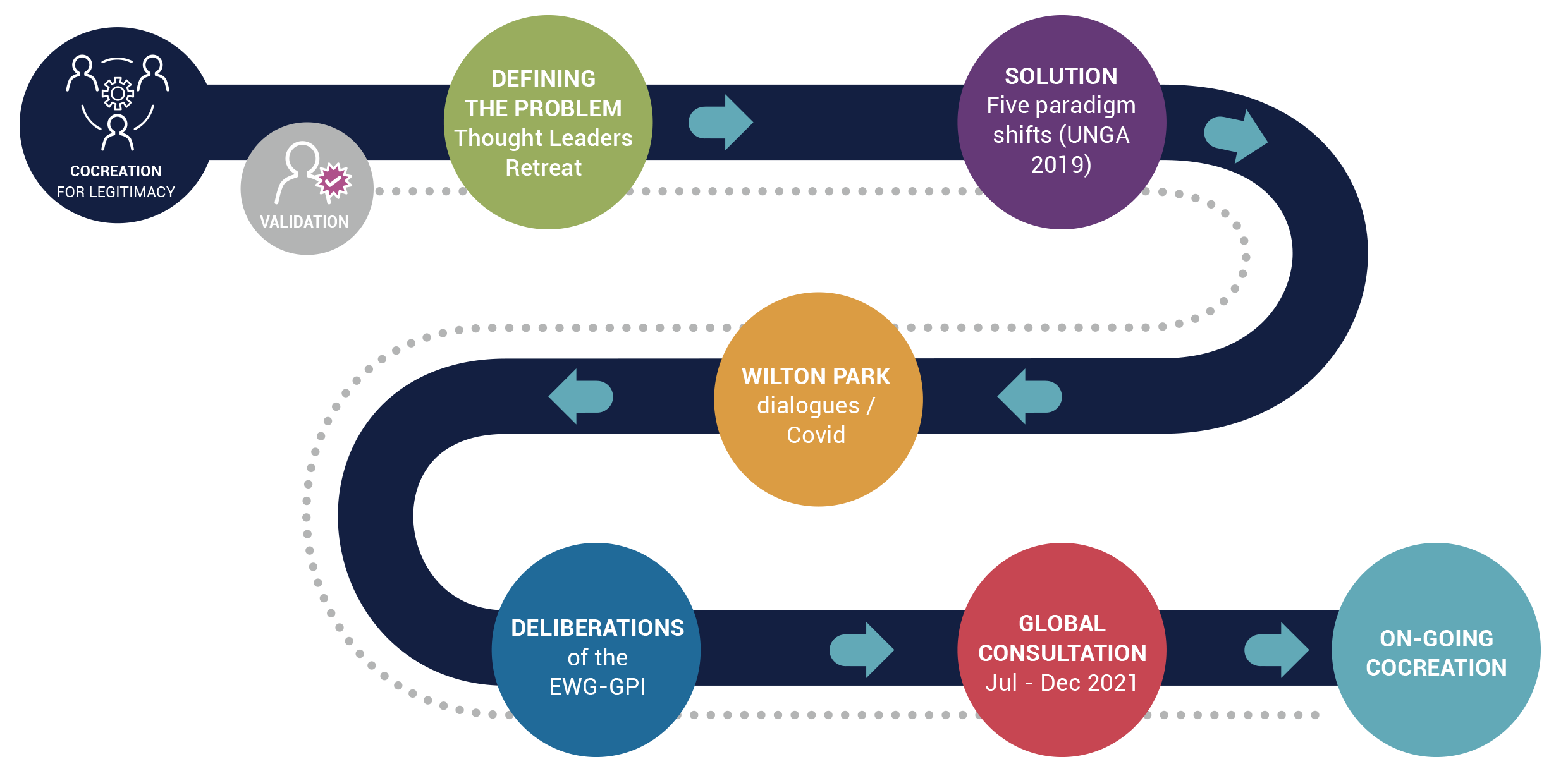The Expert Working Group on GPI
Introduction
International cooperation has never been more needed, but the current system of “aid” is outdated and ineffective. The concept of Global Public Investment (GPI) was developed to make the case that, because of its unique characteristics, concessional international public finance continues to have a critical role in responding to current and future global challenges, but that it has to evolve fit a new context. This is not just about transforming the aid debate: it represents a new paradigm of fiscal policy for the 21st century.
In part because of the way the pandemic has sharpened the consequences of inaction, support is growing for GPI all over the world and from a variety of political standpoints. Momentum is growing, and Overton’s famous window of political acceptability is now well and truly open.
In the last few years, a growing number of experts and organisations have begun to support the new GPI approach. But important technical questions still need resolving, and detailed plans which take into account political opportunities and barriers need to be consolidated into a coherent plan of action to make GPI a reality.
While most informed people recognize that change is needed, there is no technically sound and politically viable road map that governments, multilateral organisations, civil society and other stakeholders can all sign up to.
The Expert Working Group
This is what the Expert Working Group was established to resolve. Given the urgency of this issue and the critical political moment the core task of the Expert Working Group on Global Public Investment (EWG-GPI) is to deliberate on the GPI concept, ensure that it is both representative and robust, and then make concrete proposals for implementing it.
The Expert Working Group on Global Public Investment (EWG-GPI) was established in October 2020 to deliberate on the key technical and political questions of GPI in order to produce a concrete proposal for its implementation. While the broad outlines of a new framework have been sketched out, the EWG-GPI was tasked with moving beyond principles, and envisioning what GPI will look like in practice. The EWG-GPI’s overall purpose is:
To deliver a technically sound and politically attractive action plan for GPI which will garner support across the globe and in various sectors.

How was the Expert Working Group convened?
At the core of the formation of the GPI Expert Working Group, is the concern to ensure that this is not just another ‘top down’ initiative, devised by powerful interests ‘on behalf’ of others.
By assembling an Expert Working Group in this way and reporting on its progress here, we open for a democratic and transparent route to international public spending fit for the twenty-first century. Prior to its final publication a draft of the Report will be made available on this website for consultation.
Take a look on the members page and you will see representatives from across the political spectrum, from all the major regions of the world, from national government agencies, non-governmental organisations, and multilateral bodies – including UN agencies.
By assembling such a representative group we aim to ensure that the GPI proposal is developed in as robust a way as possible. It gives us confidence that that the group will deliver, in 2021, a technically sound and politically attractive action plan which will garner support within key sectors around the world.
Plenary meetings
To date the EWG-GPI has met in plenary session four times, in October 2020, December 2020, January 2021 and March 2021. The first plenary established the scope and objectives of the group. The second plenary established a set of sub-groups that have delved into key issues – these are described in the next section. The third plenary reviewed progress and agreed on a plan for a consultation phase to influence the final report. The fourth plenary worked on the consultation materials.
Sub-groups
The EWG is assisted by the work of sub-groups to delve more deeply into certain areas. Some members of these sub-groups bring additional expertise from outside the EWG.
Definitions: This group focuses on the definitional components of the proposal (e.g. what will GPI be spent on, how do we define GPI as against other possible approaches (e.g. GPGs, ODA as well as examining issues of GPI “compliance”.
Governance: This group focuses on core governance arrangements relating to GPI in practice (across regions, countries, organisations, and key sectors like civil society) and “core” GPI principles.
National/regional: This group focuses on what GPI would mean specifically for different country types and regional bodies. What are the benefits to different kinds of government/country of the GPI approach? How would a GPI approach enable bilaterals to contribute more and better to global objectives? And what steps do bilaterals need to take to further the GPI approach?
